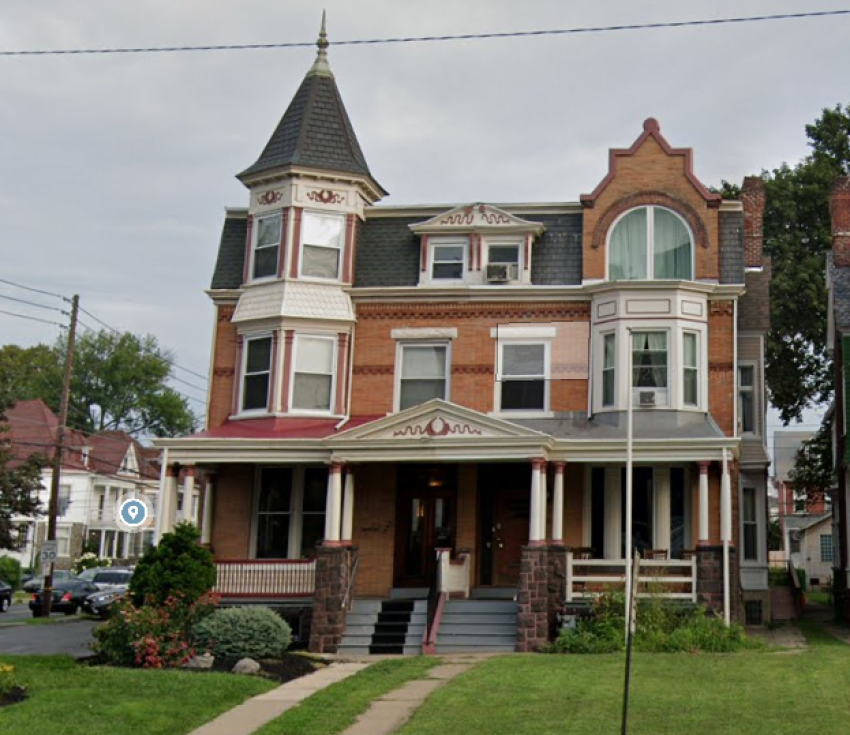Pennsylvania church sues city after zoning application for drug, alcohol recovery home is denied

A Pennsylvania church filed a federal lawsuit last week, claiming the Allentown Zoning Hearing Board violated the Americans with Disabilities Act and other anti-discrimination laws by denying the church permission to operate a sober-living group home located in West Park.
Since February 2019, 11 disabled residents recovering from drug or alcohol addiction have lived in a sober-living, 10-bedroom house in the 1400 block of Hamilton Street operated by Allentown Victory Church called the Recover Victory Home.
According to an online document outlining the codified ordinances of Allentown, the city’s high-density residential zoning regulation prohibits drug and alcohol rehabilitation facilities or halfway houses, except under certain circumstances, such as accommodating those with disabilities.
Allentown Victory Church applied for a special exception with the Allentown Zoning Hearing Board. The church imagined the board would make an exception to allow it to operate the sober-living home because every disabled resident living in the home qualifies for disability accommodations based on the Americans with Disabilities Act and the Federal Fair Housing Act.
The Morning Call reported that the church had two hearings with the zoning board in June and August 2019. However, the plan faced opposition from neighborhood residents. The zoning hearing board reportedly voted 2-1 to deny the application.
In the lawsuit, Allentown Victory Church requested accommodation under the Americans with Disabilities Act and the Fair Housing Act to be treated as a group home instead of being considered a halfway house because all residents are disabled.
According to the daily newspaper, Pastor Matthew Catricola said during the August 2019 hearing that the individuals accepted into the sober-living home are asked to commit at least nine months to the recovery program but have the option to leave at any time.
However, the zoning board concluded that the use of the home was more in line with a halfway house because residents are required to attend either religious services or participate in a 12-step recovery program. The board ruled that such requirements are "province of halfway houses," according to The Morning Call.
The Zoning Hearing Board outlined in Article 1307 of the “Zoning Hearing Board; Special Exception Procedures" that to grant an exception to the regulation prohibiting drug and alcohol rehabilitation facilities or halfway houses, the parties must meet specific criteria. The criteria include that "only persons who the applicant proves have 'disabilities' as defined in and protected by such laws are served."
The lawsuit alleges that the disabilities of the recovery house’s residents were not considered as required by the zoning code and that the city’s actions have the effect of denying needed housing opportunities to recovering drug and alcohol abusers.
The case will be handled in the U.S. District Court for the Eastern District of Pennsylvania.
The attorney representing Allentown Victory Church is Steven G. Polin. Polin litigates sober house cases in federal and state courts.
His legal firm aims to protect the Fair Housing Act rights of sober-housing providers and represent those who have been victims of housing discrimination since 1993.
The Christian Post reached out to Polin for comment on the case. A response was not received by press time.
Polin argues that the zoning board misapplied the Fair Housing Act by concluding that the church can't request accommodation for its residents, The Morning Call notes.
Even though the case has been publicly logged online, Mike Moore, the communications manager for Allentown’s Mayor Ray O’Connell, told CP that “The city has not yet been served with the suit and therefore has no comment.”
Pastor Catricola and representatives from Allentown’s Zoning Hearing Board did not respond to CP’s emails and phone correspondence requesting comments.
The state has currently approved the home as a residence for people on parole or work release while the lawsuit continues.
The church’s Recovery Victory Home aims to help individuals “develop meaningful relationships with God” and develop the “basic skills necessary for a genuine recovery experience.
“We saw a gap, a problem. When men got out of jail or rehab, we saw too many of them get disconnected with God and the right people, and they ended up back where they started, back in jail or rehab,” the church’s website explains. “There were not enough good transitional places, especially that were Christ Centered. So God birthed in our Heart Recover Victory Home.”



























